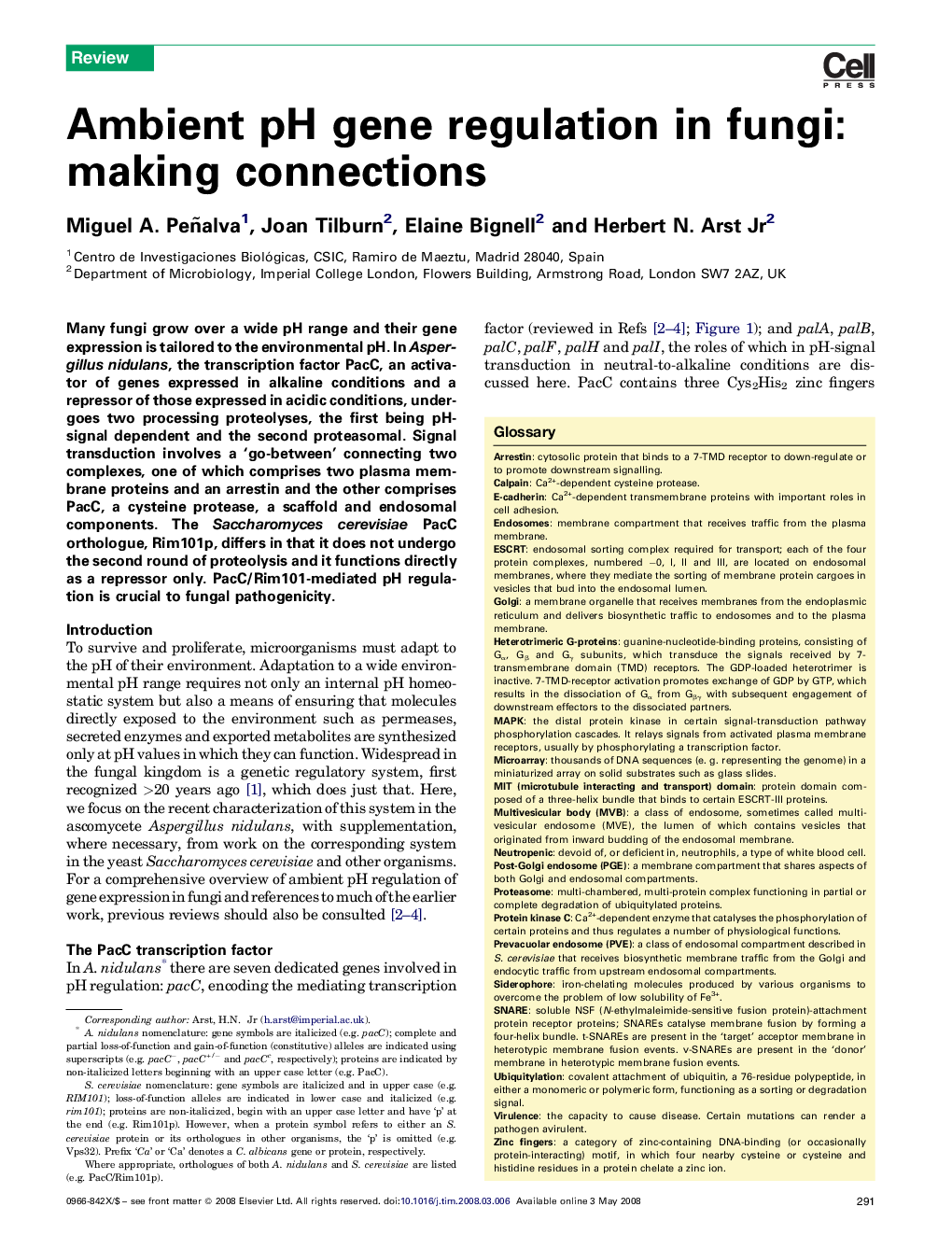| کد مقاله | کد نشریه | سال انتشار | مقاله انگلیسی | نسخه تمام متن |
|---|---|---|---|---|
| 3422581 | 1226776 | 2008 | 10 صفحه PDF | دانلود رایگان |

Many fungi grow over a wide pH range and their gene expression is tailored to the environmental pH. In Aspergillus nidulans, the transcription factor PacC, an activator of genes expressed in alkaline conditions and a repressor of those expressed in acidic conditions, undergoes two processing proteolyses, the first being pH-signal dependent and the second proteasomal. Signal transduction involves a ‘go-between’ connecting two complexes, one of which comprises two plasma membrane proteins and an arrestin and the other comprises PacC, a cysteine protease, a scaffold and endosomal components. The Saccharomyces cerevisiae PacC orthologue, Rim101p, differs in that it does not undergo the second round of proteolysis and it functions directly as a repressor only. PacC/Rim101-mediated pH regulation is crucial to fungal pathogenicity.
Journal: - Volume 16, Issue 6, June 2008, Pages 291–300